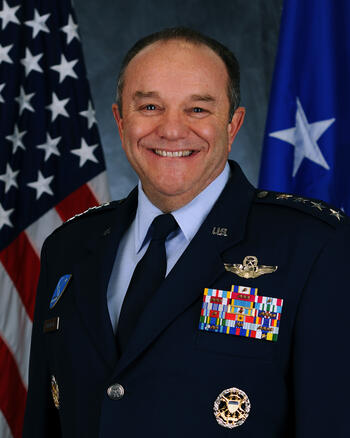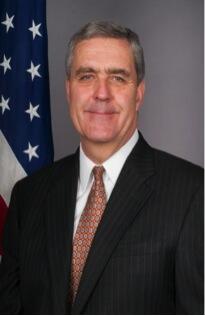Sixty-eight years later, acts of genocide still occur, despite international efforts to prevent them. Stanford Professor of History and former Stanford Global Studies Director
Norman Naimark, author of the newly published
Genocide: A World History (Oxford University Press), answers questions about his new book, which examines the main cases in the history of genocide from ancient times to the present.
The Convention on Genocide defined the term as a variety of “acts against committed with the intent to destroy, in whole or in part a national, ethnical, racial, or religious group, as such.” Can you take us back to this moment in history—what was the context surrounding the convention and the origin of the term?
On the one hand, the convention reflected the intense lobbying, fervent commitment, and long-time interest of the Polish-Jewish international legal scholar, Raphael Lemkin, who coined the term “genocide” in 1944, after having escaped the Nazi takeover of Poland. On the other, it spoke to the needs of “international society” to outlaw the kinds of crimes committed by the Nazis against national and ethnic groups. In many ways, it was a backward looking document. It took a very long time for it to be ratified by the UN member nations (the U.S. ratified it only in 1988) and to become a part of international law in the way we think about it today. In fact, the convention was mostly forgotten and shelved until the 1990s with the war in Bosnia and the Rwandan Genocide.
What sparked your interest in this topic and inspired you to write this book?
I first began thinking seriously about questions related to genocide during the Balkan Wars of the early and mid-1990s. The murderous events in Bosnia, in particular, really shook me up, since I had spent quite a bit of time in the region as a graduate student and did not expect in the least the severe ethnic tensions that fueled war and genocide.
I tried to think comparatively about the historical phenomenon of genocide, and that led to a series of books about genocide in the twentieth century: Fires of Hatred; Stalin’s Genocides; and A Question of Genocide. After engaging the questions of students and scholarly audiences, I realized that genocide did not belong just to the twentieth century or just to Europe, but rather was the product of the enduring character of human societies. As a result, I started teaching a frosh seminar on “The World History of Genocide,” which, in turn, became the basis for this new book.
This book is really driven by student questions, discussions, and papers from that class. I dedicated the book to my students, many of whom have gone on to study human rights and international affairs at Stanford and beyond. The students really dug into the material and helped me understand how relevant it was to their own lives and their future.
In the book, you explore different cases of genocide throughout history. How has genocide changed over time? In what ways has it stayed the same?
From the beginning of human history, genocide has involved a political entity targeting a specifically designated group of people, sometimes within one’s territory and/or in another territory, and seeking their physical elimination. The motives for killing off a group, in the UN definition “in whole or in part” are less important in this view than the crucial question of intent.
There are several important “moments” in the history of genocide. One might be considered the Spanish conquest of the Americas in the sixteenth century, where the beginnings of “racial” thinking influenced the conquistadores’ massacres of indigenous peoples; another might be considered the development of the modern state following the French Revolution. The state, even in its democratic forms, can give rise to genocide.
The ideologies of communism and fascism in the mid-twentieth centuries played crucial roles in the development of genocide, and the interconnected complex of colonialism and post-colonialism also were important to the development of modern genocide. What scholars classify as “settler genocide” – when thinking about North America, the Antipodes, and Africa – was intimately linked to colonialism.
[[{"fid":"224942","view_mode":"crop_870xauto","fields":{"format":"crop_870xauto","field_file_image_description[und][0][value]":"Book cover for \"Genocide: A World History\"","field_file_image_alt_text[und][0][value]":"Book cover for \"Genocide: A World History\"","field_file_image_title_text[und][0][value]":"Book cover for \"Genocide: A World History\"","field_credit[und][0][value]":"","field_caption[und][0][value]":"","field_related_image_aspect[und][0][value]":"","thumbnails":"crop_870xauto"},"type":"media","attributes":{"alt":"Book cover for \\\"Genocide: A World History"","title":"Book cover for \\\"Genocide: A World History"","style":"width: 200px; height: 289px; margin-top: 8px; margin-right: 15px; float: left;","class":"media-element file-crop-870xauto"}}]]What are some of the challenges you’ve observed of reconciliation and forgiveness in societies that have experienced genocide?
Some scholars suggest that the history of genocide is best “forgotten,” as a way to help societies rebuild from the fierce blood-letting that genocide always involves. Revenge for past genocides sometimes provokes new conflicts. Most observers believe, however, that truth telling of one form or another—in courts, in local institutions, in cultural expression, and in historical and public discourse—is the best way to allow societies to recover.
Denial is almost always a part of genocide and its memory, which in turn makes reconciliation and forgiveness extraordinarily difficult. The involvement of international courts in convicting perpetrators of genocide has been, on balance, a positive development during the past quarter century. But the courts are frequently accused by the perpetrator populations of reflecting “victors’ justice” and political one-sidedness, which also impedes reconciliation.
Does your research shed any light on why such horrific events continue to take place, despite efforts to prevent them? Any silver linings or hope for the future?
There has been some empirical work on the incidence of violence and genocide over human history that demonstrates an overall downward trend in the percentage of people who die from violence and mass killing. The argument is that changing international norms about genocide have served to impede political leaders from turning to mass murder as a weapon of dealing with subject groups.
There are warning signs for genocide that range from increasing racism and xenophobia among societies and their political leaders to the ever-present threat of authoritarianism and the construction of police states, which make carrying out mass killing easier than in decentralized and democratic states.
The bottom line is that international institutions, laws, and norms do help impede the eruption of genocidal situations, but there are few guarantees and the international system works very slowly – think about the mass murder of the Yazidi Kurds or the bombardment of Aleppo now – when there is little agreement about how to intercede.
What additional questions did your research raise?
There is a deep gender component to genocide that needs to be explored further. Perpetrators do not treat women and men the same. There are important issues of rape and sexual exploitation involved in genocide, and, especially in the early history of genocide, women are more often than not captured and enslaved, rather than eliminated. The perpetrators themselves are almost always men – though there are frequently also women involved.
There are other dynamics of genocide that need to be studied more carefully. For example, genocide is a process, usually unleashed by war, not a distinct “event” with a beginning and an end. It tends to accelerate to a crescendo and then slows down. It frequently spreads from one targeted people or group to another, with methods that evolve and change over time. The perpetrators “learn” in the process of genocide, which ends up causing much more damage to societies than might be anticipated. These are all very good reasons for interdiction, that is, stopping genocide before it accelerates and spreads.
How do you hope this book will inform discourse or perceptions about the subject?
I define genocide rather more broadly than most scholars, including social and political groups into a concept of genocide that was initially articulated by Raphael Lemkin, but deleted, primarily for political reasons, from the 1948 Genocide Convention itself. This allows us to look at communist genocides (in the Soviet Union, China, and Cambodia), as well as anti-communist ones (in Indonesia, East Timor, and Guatemala.) Approaching genocide in this way also helps us think about genocide as a historical and potential threat to groups within societies that are frequently subjected to stereotypes, de-humanization and “othering,” and sometimes to state discrimination and even mass killing, like homosexuals and the disabled during Nazi Germany.
In the end, I believe that improving our understanding of these processes can help identify warning signs of genocide and deter, if not always prevent, attacks on minority populations of various origins.
This article was originally published in Stanford Global Studies online news on December 8, 2016 and also appears on the Stanford Global Studies Medium page.
For more information about the book, visit the Oxford University Press website.
Norman Naimark quoted in USA Today News on Aleppo.














 The social and economic integration of its diverse and ever growing immigrant populations is one of the most fundamental and pressing policy issues European countries face today. Success or failure in integrating immigrants is likely to have a substantial effect on the ability of European countries individually and collectively as members of the European Union to achieve objectives ranging from the profound such as sustaining a robust democratic culture to the necessary such as fostering economic cooperation between countries. Various policies have been devised to address this grave political dilemma, but despite heated public debates we know very little about whether these policies achieve their stated goals and actually foster the integration of immigrants into the host societies. (Inset: David Laitin)
The social and economic integration of its diverse and ever growing immigrant populations is one of the most fundamental and pressing policy issues European countries face today. Success or failure in integrating immigrants is likely to have a substantial effect on the ability of European countries individually and collectively as members of the European Union to achieve objectives ranging from the profound such as sustaining a robust democratic culture to the necessary such as fostering economic cooperation between countries. Various policies have been devised to address this grave political dilemma, but despite heated public debates we know very little about whether these policies achieve their stated goals and actually foster the integration of immigrants into the host societies. (Inset: David Laitin) The goal of this research program is to fill this gap and create a network of leading immigration scholars in the US and Europe to generate rigorous evidence about what works and what does not when it comes to integration policies. The methodological core of the lab’s research program is a focus on systematic impact evaluations that leverage experimental and quasi-experimental methods with common study protocols to quantify the social and economic returns to integration policies across Europe, including polices for public housing, education, citizenship acquisition, and integration contracts for newcomers. This work will add to the quality of informed public debate on a sensitive issue, and create cumulative knowledge about policies that will be broadly relevant. (Inset: Jens Hainmueller)
The goal of this research program is to fill this gap and create a network of leading immigration scholars in the US and Europe to generate rigorous evidence about what works and what does not when it comes to integration policies. The methodological core of the lab’s research program is a focus on systematic impact evaluations that leverage experimental and quasi-experimental methods with common study protocols to quantify the social and economic returns to integration policies across Europe, including polices for public housing, education, citizenship acquisition, and integration contracts for newcomers. This work will add to the quality of informed public debate on a sensitive issue, and create cumulative knowledge about policies that will be broadly relevant. (Inset: Jens Hainmueller)